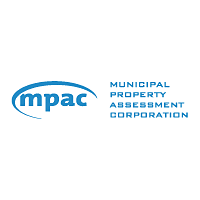Your home or your purchase is possibly going to be
the single greatest purchase or sale you make.
Trusting that kind of money to someone is a big deal and should be
treated as such. It’s that simple.
First:
Talk to a few Agents, there’s many of us and like with any purchase you want to
compare. See who’s right for you. Who’s
listening to YOUR needs and who understands what YOU want to do, where you want
to go and how much you want to spend.
The Agent must respect YOUR money.
Second:
Ask to see the numbers. As agents we all have access to the same figures. The same Data, the same Sold statistics and
when pricing your home, ask to see what has sold in your area and ask to see
the homes in your area that are comparable to yours. Comparing a bungalow to a 2 story is not
accurate and not the same.
Third:
Don’t be swayed by the Agent who gives you the highest price they can sell your
home for. They may be telling you what
you want to hear and it may not be what the actual reality is. Ask the Agent who tells you that your
Detached can be sold for $500 000.00 when 2 others have stated $475 000.00,
where or how they arrived at that number.
The biggest disappointment doesn’t happen when the For Sale sign goes
up, hit happens 2 weeks later when they tell you that you need to reduce the
price and then 2 weeks later they tell you the same thing again. Next thing you know, you’ve arrived at the
$475 000.00 price you were quoted by 2 other agents and it feels like you were
mislead.
Fourth:
When you see the numbers, accept them.
You may think that your home is worth so much more but the reality is
the numbers. If Bungalows are selling
for $500 000.00 on your street or neighborhood, chances are you will not be
selling your bungalow for $600 000.00.
It’s all about the numbers and they don’t lie. I’m not stating that you won’t make more,
that you shouldn’t list it higher as every home has a unique and special quality
to it that can translate in to higher sales figures but trust that the data you’ve
asked to see is correct.
Please keep in mind that timing is also
everything. Will you generate higher
offers in November verses April? Which months are the best to sell or buy? Seasons are important and can impact the
sales figures. Homes sold in the spring
typically generate higher sales figures than those sold in the late fall. Selling in December is more difficult than
choosing February or March. There’s a
Buyer and a Seller in every season, the question is, how many of them are
there?
Fifth:
Yep, Commissions are negotiable. That’s
the truth. Some agents won’t drop theirs and others do so without blinking an
eye. If you don’t ask and they don’t
offer, you’ll be charged, as a seller, the “standard” rate.
The reality is this, most agents will reduce their
sales commissions when the Seller is also buying, what we don’t want to reduce
is the commissions paid out to the Buyer of your property. When a home is listed on MLS, what the Agents
see and what you see are generally 2 different sets of information. As agents we see what the commission rate
being paid out to the Buyers agent is and if it’s less than industry standard,
then many agents won’t show the home when there’s a comparable listing whose
commissions being paid to the Buyers agent are full. That’s the truth. Is it right? No it’s not. But the reality is, you want to expose your
home to the maximum amount of agents and buyers possible and that may not
happen if the Buyers commissions are reduced.
So when you see that sign or hear from an Agent that they will sell your
home for 1% - what they mean is this: They will charge YOU 1% to sell but still
will pay out the 2.5% to the Buyer for a total of 3.5%.
Sixth:
Finally, how do you feel with the person across from you? Did they listen to
you? Did they show the figures? Will they be there for the Open Houses
personally or will they send someone else? Did they explain the contracts to
you so that you understand them? It’s about trust and about how you feel with
that agent. Instincts are important.
I’ve often been told I am an amazing Buyer’s agent
because I listen, I follow through and provide all of the information. I take the time to explain all of the
contracts and I get answers when I am asked questions. I typically don’t show my Buyer’s properties
well over their budgeted price because I respect that it’s their money and when
heading into a multiple offer situation, I have a game plan that prevents my Buyers
from overspending. I treat all of my
clients with respect, I negotiate fiercely and finally I treat all of my
clients as clients for life, not just one sale.
I put 100 percent into everything I do and if my Buyer is looking for a
property that is worth $200 000 or $1 500 000, of if my Seller’s property is
worth $175 000 or $2 000 000, everyone gets treated with the same amount of
dignity, honesty and respect because that's just who I am and that’s what
everyone deserves.
Sales
Rep.
Sutton
West Realty Inc.
(416)
388-7384











































